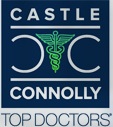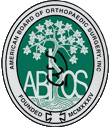
Our shoulders carry many loads throughout our lifetime. They work hard everyday and we don’t even give it a thought - until we experience a shoulder injury.
The shoulder is the most frequently dislocated joint.1 Because of the shoulder’s incredible range of motion, it is vulnerable to instability and dislocation.
A dislocated shoulder is an acute injury usually resulting from a sports injury or a fall, and should be treated by a medical professional right away. Until the joint is realigned, pain and swelling will continue to increase. An X-ray helps us to assess the injury for broken bones or damage to the joint so that we can determine the best form of treatment.
Once the shoulder has been realigned, pain and swelling will quickly decrease. Depending on the injury and the patient, two courses of treatment will follow: non-surgical treatment or surgical treatment.
Non-surgical treatment: A shoulder dislocation is typically treated first with conservative non-surgical methods. These include activity modification, non-steroidal anti-inflammatory drugs (NSAIDs), hot/cold therapy, and physical therapy.
Surgical treatment: If the joint has suffered structural damage then surgery may be needed to repair torn or stretched ligaments. Shoulder arthroscopy, a minimally invasive procedure, is used to repair the shoulder and restore stability to the joint in the majority of cases.
Shoulder rehabilitation is dependent on the severity of the injury. Most often, patients can expect 3-12 weeks of recovery. Physical therapy and strengthening exercise are vital to regaining full range of motion and avoiding future injuries.
The treatment plan for a dislocated shoulder is dependent upon the injury and the patient. Non-surgical treatment is indicated in older patients and those not participating in contact sports. Surgery is almost always indicated in young athletes that participate in contact sports who have experienced shoulder dislocation or recurrent shoulder instability. At your appointment, we will thoroughly evaluate your injury and help you determine the best treatment plan for your specific injury and your specific circumstances.
Dr. Ryan Colley attended medical school at Midwestern University Arizona College of Osteopathic Medicine. He completed a residency in orthopedic surgery at Ohio University, studying all orthopedics fields, including trauma, joint replacement, sports medicine, pediatrics, and hand surgery. He focuses on all aspects of upper extremity joint replacement, reconstruction, trauma, and arthroscopy. He also performs robotic-assisted total knee replacement. He has authored several publications and book chapters. He takes a holistic approach to improve the quality of life for his patients. In his free time, Dr. Colley enjoys time with his wife and two children. They love to hike, fish, snowboard, and travel.





 Book an Appointment
Book an Appointment
 Patient Portal
Patient Portal